January 2nd, 2019 — movie reviews, on writing lit -- and unlit, Politics & Other Disappointments, TV reviews
2018 was, as I’ve recently written elsewhere, a year of boundary-busting black achievement in the arts and much of what follows below will re-emphasize this point. But it was also a year when you needed black storytellers to step up, lean in and heave grenades at whatever retro-reactionary politics are throwing their weight around the country.
And you also needed these stories to reinforce something you wont hear on Meet the Press or anywhere else on daytime TV: whatever the “alt-right” or its enablers believe they’re trying to defeat has already triumphed. We have become, in pop-cultural terms, so diverse, multi-ethnic and blended together that even using the “multicultural” term so despised by Fox News and its minions is redundant and likely no longer the point. I’m aware that stuff keeps happening to innocent, unarmed people-of-color that mitigates this impact. But whether anybody in positions of power cares to acknowledge it or not, the “culture wars” they’ve been fretting about since at least before the century started have been all but won – and those of us on the winning side should start acting like it no matter what the legacy news organizations say.
It’ll take more time for this news to sink in – and part of acknowledging victory is accepting the fact that there will always be a hard, prickly core of humanity that will never accept the results. But what James Baldwin published sixty-five years ago is truer now – and, for many, harder to accept: “The world is white no longer and it will never be white again.”
My totally subjective, utterly random list of whatever moved or grooved me in 2018 is not totally white or black or pink or yellow. I’m not sure where on the prism it is and I like it that way. As usual – and I cannot stress this enough – these are all in no particular order:

Killing Eve – The wiggiest British TV spy series since a fat white blob immobilized Patrick McGoohan a half-century ago was also the year’s most irresistible dish of nuts: eat one and all the rest are instant history. Nutty is the ideal word to characterize this continent-spanning cat-and-mouse game between a frowsy, doggedly inquisitive MI-5 analyst (Sandra Oh) and a button-cute sociopath (Jodie Comer) who can’t help showing off when she’s murdering people in secret. The story, awash in sultry inference and disorienting menace, carries more double- and triple-crosses per episode than a John Le Carré novel. And creator-producer Phoebe Waller-Bridge’s variations on Luke Jennings’ “Villanelle” series of short-form thrillers are jolting and darkly witty enough to make you feel throughout as though you’re watching Patricia Highsmith convulse on laughing gas. Among the show’s myriad satisfactions is seeing Oh thrive in the deep-dish central role her brilliant career has merited and in beholding the relatively lesser-known Comer, a hoot-and-a-half as an angel-of-death who is as good at her work as she is poignantly flawed. We await a second season with these damaged souls wondering how they and their respective handlers, enablers and hangers-on can possibly continue, much less surpass, the craziness they – and we – have already undergone.
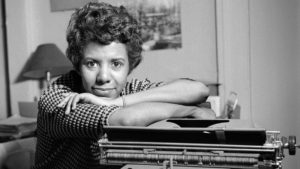
Lorraine Hansbury: Sighted Eyes/Feeling Heart – The year was so crowded with turmoil and exasperation on a day-to-day basis that it was easy to forget that Tracy Heather Strain’s illuminating documentary had aired way back in January on PBS’s American Masters series. Remembering it now renews one’s profound gratitude for not only restoring the author of A Raisin in the Sun to contemporary consciousness, but in bringing forth the complete person in all her complexities, contradictions and, above all, courage, whether in living out her precociously uncompromising radical politics, confronting Bobby Kennedy over his brother’s foot-drag on civil rights and coping with love and life as a closeted lesbian. It felt bracing and, above all, timely to have her back among us, even if her most significant work of art never went away.

Spider-Man: Into the Spider-Verse – If you abhor comic-book movies, I’m not going to judge, or dismiss your qualms about seeing this one. As much as I loved Marvel Comics in my protracted adolescence, I now find in the whole superhero movie corpus a distressingly anti-democratic strain that implicitly encourages its devotees to abandon their individual agency and submit to those with greater, higher powers. (It remains my principal misgiving towards Black Panther and the accompanying “Wakanda Forever” phenomenon, however much I enjoyed the movie and endorsed its salutary impact on global movie markets.) But the giddily “meta” nature of this iteration of the web-slinging wonder both opens up the genre to fresh appreciation and brings its inflated pretenses and aspirations for personal transcendence to something resembling ground-level; actually more like street-level in the case of Miles Morales, brown-skinned schoolboy prodigy resisting the isolation of his nascent genius as he finds himself bitten by the same radioactive spider that juiced Peter Parker’s metabolism to near-invincibility. The Peter Parker in Miles’ world has been killed, but a tear in the cosmos caused by…oh, never mind…results in a riot of multiverses from which a handful of other similarly bitten boys, girls, men, women and even cartoon pigs spill into Miles’ Brooklyn all capable of walking on walls, shooting out web fluid and pounding evildoers three times their respective sizes. The narrative is persistently clever and the animation is surprisingly evocative. Which brings me to another of my biases towards comic-book movies: that a pair of feature-length animated Batman movies are far better realized than all their live-action counterparts and that no Superman movie, not even those with the late, lamented Christopher Reeve resides as deeply in my devotion as the Fleischer animated shorts of the 1940s. The lesson being that maybe, just maybe, the best comic book movies are those that look most like a damn comic book.

Luke Kirby as Lenny Bruce – Don’t get me wrong. I’m as charmed by The Marvelous Mrs. Maisel’s second season as I was with its predecessor. And yet, as was the case last year, the show’s sheer momentum threatens to exhaust me before I’m halfway through its run. It seems to start from a point way above my head and just keeps rocketing skyward on hyper-thrusts of spritz. More often than not, I kept wondering whether Rachel Brosnahan walks that fast in real life and if so, how much carbo-loading does it take for her to get through an average day. It’s only when Luke Kirby’s Lenny Bruce materializes from the shadows that Mrs. Maisel takes a knee, along with a deep breath, to retrieve its bearings. At first Kirby’s dead-solid rendering of Bruce’s mannerisms, vocal tics and stage swagger seemed little more than a plot device, a sharkskin Jiminy Cricket, or Obi-Wan Kenobi in thin lapels popping up to remind Midge of Her One True Way. This season, there was something more haunting and maybe a shade more ominous in Lenny’s once-insouciant temperament; faint traces, even as far back as 1960, of blue meanies closing in on his incendiary shtick. Back then, as some of us are old enough to remember, the straights went after Lenny for speaking the unspeakable. It’s a good thing we’ve evolved to the free-and-open cultural dialogue of our own time, isn’t it? That little qualifier at the end should make watching Kirby’s Lenny an even more unsettling interlude to the wacky-pack chronicles of Miriam Maisel’s midcentury coming-of-age.
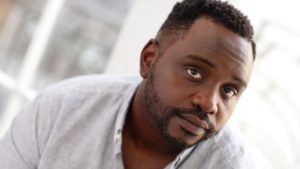
Brian Tyree Henry as Everyman – I’m not alone in believing that the second “robbin’” season of Donald Glover’s masterly Atlanta saw the ascension of Alfred “Paper Boi” Miles to the series’ center stage. As the eternally grumpy, enigma-wrapped-in-a-riddle rap-star-in-the-making, Brian Tyree Henry himself became a rising star as he made his working-class-stoner persona bend and react to the narrative’s quasi-surrealist tropes and to the increasingly dubious rewards of Paper Boi’s cult stardom. Henry’s own presence has, like Al’s, been spreading throughout the cultural mainstream from a vocal role in the aforementioned Spider-Verse to a Tony-nominated performance in Kenneth Lonergan’s Lobby Hero to a wide range of movie roles, including the political kingpin in Widows and an ex-convict in If Beale Street Could Talk. Though he isn’t in the latter movie for very long, Henry’s presence during a sad, tense conversation with the movie’s star-crossed lovers (Stephan James and KiKi Layne) crystalizes the legal system’s devastation upon black men’s lives and the oblivion that swallows their dreams. At that moment, Beale Street becomes something larger and more all encompassing than even the intense love story at its core and Brian Tyree Henry is transformed into every friend we ever had whose life was unjustly ruined by casual systemic racism.

The Sisters Brothers – The year’s most talked-about western movie was the Coen Brothers’ cheeky, rusty-dusty Netflix pastiche The Ballad of Buster Scruggs. I liked it, too (most of it anyway). But I very much preferred Jacques Audiard’s statelier, more traditionally mounted genre piece that was unfairly gunned down in cold blood at the box office. It was in its way as quirky as the Coens’ mash-up, but its satisfactions were deeper, more redolent of what those of us who grew up with westerns (like, say, me and Audiard) remembered best; their measured pacing, ritualized stoicism and gritty characters. Joaquin Phoenix and John C. Reilly as the eponymous outlaw brothers offered familiar personality contrasts with Phoenix, not surprisingly, throwing off wayward sparks and Reilly, maybe more surprisingly, evoking enough gravitas to carry the movie’s moral core. That some critics dismissed the story’s rambling manner said less about the movie’s shortcomings than the collective amnesia of contemporary audiences towards the kind of discursive storytelling that moviegoers took for granted in the days when Ford, Hawks, Mann, Boetticher and Peckinpah rode directors’ chairs on desert sound stages.

Heads of the Colored People – Among the auspicious debut story collections published in 2018 by African American writers, this one remains my favorite for the stealthy wit and acerbic observation sustained in a variety of settings. “Belles Lettres,” for instance, is presented in the form of increasingly snarky notes planted by black “bourgie” moms in their daughters’ backpacks. The title story is a darkly comic and ultimately tragic tale of an encounter outside a comic book convention between a “cos”-wearing fan and a street entrepreneur. Then there’s the inventive and similarly harrowing/funny “Suicide, Watch” [sic] in which a young woman uses social media to determine how, or if, she should do away with herself. Nafissa Thompson-Spires has a talent large enough to propel her towards a novel, and I can’t wait to see what she does. An honest-to-goodness African American variation on Catcher in the Rye? It’s certainly within her grasp, but I dunno: I really like what she does within the tighter corners of the short story

Equalizer 2 – What throws you a little when watching Antoine Fuqua’s pared-to-the-bone franchise sequel isn’t how much Denzel Washington has aged. (His character is called “Pops” by one of the preppie predators he’s about to break into several gratifying pieces.) It’s how beautiful he remains to watch in stillness, even though his eyes at times betray a compound of world-weariness and cumulative horror over what his sixty-something vigilante-bibliophile has witnessed in a gloomy, bloody life. Washington has achieved more than a veteran’s smooth grace in front of the cameras. He’s made watchfulness into a movie star trademark and is carrying this stripped-down persona into what promises to be a golden age of elder statesman roles, only without the implied stiffness and solemnity. Artist-craftsmen who casually wear their gifts are easily taken for granted; a mistake that has not and should never be made in Denzel Washington’s case.


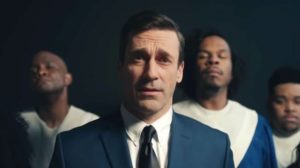
Random Acts of Flyness — “RACE IS A SYNONYM FOR WHITE SUPREMACY” is one of the flash cards whizzing by in the fifth and penultimate episode of this HBO series which along with
Sorry To Bother You was the year’s most emphatic and adventurous expression of black-bohemian-futurist consciousness. I’ve already had my say about Boots Riley’s impudent phantasm of a feature film. But I’m still sorting through my reactions to Terence Nance’s mash-up of sketch comedy, animated shorts, ideological infomercial and time-warped romance. It’s been called “Key & Peele on Acid” and “Monty Python for Woke People,” though I think the whole notion of “woke”-ness is among the many present-day rhetorical motifs Nance and his collective of artists, actors and insurgents are interrogating. In that same episode (to my mind the best and most intensely realized), the “woke” concept is countered with the idea that sometimes sleep may be good for you and I’m still not sure, after many weeks of “sleeping” on this show that it’s being in any way sarcastic; it even implies that sleep, or at least, rest (e.g. contemplation) isn’t an evasion or a denial of “woke”-ness, but a means of protecting one’s own autonomy over one’s – whadyacall? – soul? If that drive-by notion can plunge the unwary into a deep, broad pool of thought, you can imagine how the myriad content of the other five episodes seeps into your head; “imagining “being both the method and the meaning behind Flyness – which has been given at least another season to snap at your comfort levels.




Adrian Piper: A Synthesis of Intuitions 1965-2016 – It has all come down, or risen up to this: The largest, most expansive exhibit the Museum of Modern Art has ever staged for a living artist. For the first half of 2018, MoMa’s whole sixth floor was occupied with drawings, photographs, videos, cards, signage and whole rooms of Piper’s variegated output over six decades as performance artist, minimalist, creator of “happenings” and insurgent Kantian philosopher. The sheer heft and breadth of her oeuvre taunt anyone’s efforts to express its essence, but Thomas Chatterton Williams, in an New York Times Magazine article as illuminating and frustratingly complex as his subject, came as close as anybody could when he wrote that Piper “has been quietly conducting, from that vexed and ever-expanding blot on the American fabric where white and black bleed into each other, one of the smartest, funniest and most profound interrogations of the racial madness that governs and stifles our national life that I had ever encountered.” Whether it’s a “humming room” whose guards encourage everybody entering it to hum a melody, any melody; or the mercurial self-portraits that play approach-avoidance games with her African American heritage; the “space-time-infinity” pieces tearing and nibbling at the perceptions of useable space on a geometric plane; the famous, or infamous calling cards that tweak unsuspecting strangers for casual or unwitting racism and sexism…All of it breathtaking, intimidating and provocative at once. Piper now lives a near-monastic existence in Germany and has, as of four years before, “retired” from being black, issuing this announcement in yet another irony-infused self-portrait in which she darkened her pale brown skin. All this and she can still dance her ass off. I remember wandering from the exhibit dazed, bemused and utterly refreshed. (Two words flashed in my frontal lobes: Trickster Goddess.) The last century didn’t quite know what to make of her. Maybe this one will..

February 6th, 2017 — movie reviews
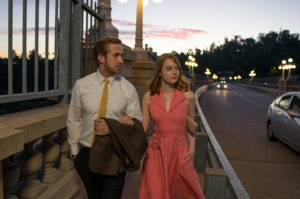

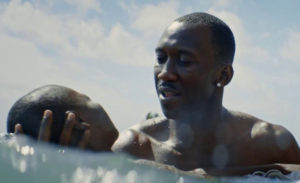

MBTS_3869.CR2
By the time newspapers and magazines like this one tell you something is over, you know it’s already been over for some time. Indeed, newspapers and magazines have been telling themselves they’ve been over for so long that you wonder if it’s begun to occur to them yet that they may NOT be over after all. But that’s another subject for another time…
Anyway, even when I’d published my last movie review in Newsday in 2008, much of what Nick Bilton describes in Vanity Fair was already in motion, shredding Hollywood’s serenity so much that even some of its potentates were ready to declare their universe – and thus, civilization – dead.
Actually, it’s the circus that now looks deader than hell. And if anything’s to blame for that, it’s whatever’s left of Hollywood, meaning the stunt-heavy blockbusters and tent-pole franchises whose commensurate product can likely be laid end-to end along the Equator. While exhibitors are still feeling terminally, even mortally wounded by the changes wrought by digital technology, I’m pretty sure Fast and the Furious sequels will be around to soothe their nerves for a while. In fact, those things may become so self-referential and post-modern that everyone in the cast of The Devil Wears Prada will someday be asked to take part in a Very Special F&F movie…even La Streep herself. And you know she’ll kill it, even they give her a KIA to drive.
The Oscars are once again upon us, speaking of self-referential, post-modern rituals. They make everybody, especially the editors of newspapers and magazines, believe Hollywood as it used to be still matters. But as has been the case for decades now, it’s not the movies, but politics and culture that comprise the nimbus of advance buzz. Last year, if you can remember that far back, there was all this chatter about how host Chris Rock would deal with the #OscarSoWhite foofaraw. (Damned well, I thought, at least.) This year, it’s how host Jimmy Kimmel will use his late-night chops to bring the hammer down on the House of Trump and Bannon…and how trolls on either side deal with it. I don’t remember Johnny Carson having to walk minefields like this, beyond the exemplary way he finessed his 1981 opening monologue with that day’s shooting of President Reagan.
What about movies? Well, what about them? They’re considered something to distract us from the news, which, as it happens, is how those aforementioned newspapers and magazines have always considered them. The real issue this year, and likely for years to come, is the degree to which the movies still reflect or affect their times. The best still try, as most of the nominees below attest. But do their efforts compel us to leave our homes for the evening, let the kids, pets and plants figure things out for a couple hours and sit in the dark to see what and who we are? Right now, I’d say no, though in the last few weeks, I know many people who took the trouble to see a movie about black women mathematicians struggling with their federal jobs. What the hell. In another week or so, we may hear that the efforts to declare Hollywood dead are also dead. Or we may hear the last death rattle in a year or so. Meanwhile, we watch the Oscars to distract us from the distractions from the distractions planted in our public life…Untie those knots and you’ll know what to expect in 2027, if not sooner.
For now, since you’re all still expecting me to drop these things this time of year, here are the picks. As always, predicted winners are in bold and, once again, I’m pulling out a For Whatever It’s Worth (FWIW) addendum whenever applicable.
Best Picture:
Arrival
Fences
Hacksaw Ridge
Hell or High Water
Hidden Figures
La La Land
Lion
Manchester by the Sea
Moonlight
Who would have ever believed that in a field that includes a shape-shifting poem with homoerotic overtones about an at-risk man-child in the promised land and a furiously eccentric war movie directed by Mel F**king Gibson that this year’s most polarizing candidate for Best Picture is a candy-colored Jacques Demy homage? People either love La La Land without reservation or hate it with extreme prejudice. In at least two cases I know personally, the latter resentment comes from a an abiding and informed devotion to classic American musical comedy. I’ll yield to their passionate knowledge, but the movie still pushed all my happy buttons, even with its overly emphatic jazz-o-philia. (Wake me up when there’s a movie with a heroine obsessed with Albert Ayler or even This Guy.) What makes this a slam-dunk for La La Land has little to do with whether it is or isn’t a great musical. It’s because it’s a commercially successful product that makes its voters, whether they live in Hollywood or not, feel better about the profession they’re in and the dreams they’ve been peddling for generations. By such criteria, its closest competition is Hidden Figures, whose unexpected success and old-fashioned virtues make it a remote possibility, especially given the up-to-the-minute madness of the post-Obama regime. I’m guessing rapture wins out.
FWIW: I had pretty much written off 2016 as a kind of “meh” year for movies. If I had seen Jim Jarmusch’s Paterson or Maren Ade’s Toni Erdmann (see below) before New Year’s Eve, I might have changed my mind. Both in very different ways evince the abiding influence of John Cassavetes in their respective displays of intimacy and impulse. Along with Moonlight, they represent what will count in the very long run for cinema’s evolution over tent-pole corporate franchises and “prestige” product. It’ll take a while, as with every other change we’re waiting for.
Also, I kind of wish whoever floated the buzz about Deadpool’s being in this mix made good on the threat; not because I thought it was great or even very good, but because I like the idea of a rude, low-rent movie crashing a high-end party, especially when it had Leslie Uggams saying “Fuck you” on-screen to a white person instead of passive-aggressively spitting in somebody else’s cup.
(2/21) Still thinking this is how it’ll go, though there was a point early in the game when I thought the math sistahs were beginning to sneak up from behind.
Best Director:
Denis Villeneuve, Arrival
Mel Gibson, Hacksaw Ridge
Damien Chazelle, La La Land
Kenneth Lonergan, Manchester by the Sea
Barry Jenkins, Moonlight
Chazelle’s already copped the DGA prize, so he’s a front-runner here. But there’s plenty of precedent for the Oscars to zag when the trade awards zig. And I have a feeling about this one, even though it wasn’t that long ago when pundits would have regarded Moonlight as too “arty” for serious consideration in either Best Picture or this category. I doubt the movie has enough commercial “heft” to win the first. But it seems to have reached the deepest into people’s hearts and if, as I suspect, Jenkins’ quiet assertion of will and insight propels him to become the first African American to win this prize, his victory could have a resounding, transformative impact on American film, and not (only) because of race. It may not bring back “cinema” as we once knew it, but it could be the first pebble tossed into a stagnant lake.
FWIW: We didn’t get a gratuitous Clint Eastwood nomination this year, which is too bad because for a change, I thought he deserved one for Sully, its stacked-deck attitude towards federal authority notwithstanding. He still wouldn’t have won, but it was still one of the leaner, sturdier products to come from his workshop bench.
Best Actor:
Casey Affleck, Manchester by the Sea
Andrew Garfield, Hacksaw Ridge
Ryan Gosling, La La Land
Viggo Mortensen, Captain Fantastic
Denzel Washington, Fences
The SAG decision to go with D-Money here proves that Hollywood – or whatever’s left of it – would like nothing better than to reward its most formidable male box-office star with a third gold statue. I don’t think the performance is top-grade Denzel, which isn’t entirely his fault given he was also doing double-duty as the movie’s not-half-bad director. But just as the one he got for Training Day compensated for the one he didn’t get for The Hurricane, this one will nicely suffice as recompense for the one he deserved for Flight. (His crowning achievement, as I’ve said before.)
FWIW: Affleck’s performance is by far the best in the bunch and he would be lapping the field by now if it weren’t for a dark patch on his past that will not go away easily or quietly. Pretty sordid, but it still wouldn’t ruin my weekend if he ended up winning anyhow.
(2/21) ….though there hasn’t been all that much buzz in the air about Affleck’s past since the nominations were announced. (We’ve had too many other things buzzing in the air lately.) This could mean there’s still a chance he could overtake D. But I’m keeping my piece where it is.

Best Actress:
Isabelle Huppert, Elle
Ruth Negga, Loving
Natalie Portman, Jackie
Emma Stone, La La Land
Meryl Streep, Florence Foster Jenkins
If the front-runner for supporting actress were competing in her proper division (see below), this would be a runaway no-brainer, even with La Streep riding a high tide of good feeling over her State of the Union address at the Golden Globes. Given the rapacity overwhelming the government’s executive branch these days, I wouldn’t put it past the Academy to toss her another party favor to go with the three she already has, even though this title role of hers is, essentially, a supporting performance. (A reverse ringer, if you will.) People adore Stone, but despite her SAG prize, it doesn’t feel like her time yet. Negga was the best thing about her movie, which is too small a vessel to deliver her to the Promised Land. This leaves two of the most magnetic faces on the planet and while I think Portman’s performance here is much more deserving than the one for which she was previously honored, Huppert is the super glue holding together a movie with so much on its mind (and in its spleen) that it would all shatter in sharp fragments from all the attendant weight without her élan and sinew.
FWIW: Amy Adams deserved consideration here for carrying the smart, but slight Arrival than she did for making the best out of the overrated Nocturnal Animals. But the more egregious oversight was Annette Bening’s deeply moving, intricately detailed rendering of a middle-aged mom in 20th Century Women.
(2/21) People are still hyping Stone as the front-runner and I’m thinking that the reason everybody’s shortchanging Huppert is that movies-with-subtitles don’t have the presence they once enjoyed on these shores. Not all that long ago, however, a French actress did shock the system by beating out a very strong field in a foreign-language film . So there’s precedent here that doesn’t require going back to Sophia Loren or even Anna Magnani.
Best Supporting Actor:
Mahershala Ali, Moonlight
Jeff Bridges, Hell or High Water
Lucas Hedges, Manchester by the Sea
Dev Patel, Lion
Michael Shannon, Nocturnal Animals
An exceptionally strong list this year. I’d be happy with any of them walking away with the prize. I’m also pretty sure that Moonlight’s all-but-ecumenical embrace will carry Ali to the podium. It’s his year – and it’s still only the beginning for him.
(2/21) In an earlier draft, I alluded to the dark arts of Harvey Weinstein that, when deployed in Oscar campaigns, can yield envelope-popping surprises. Given such history, it shouldn’t surprise anybody that there have been tremors out there over the possibility of Dev Patel coming up on the backstretch. I still say Moonlight’s got a lot more power than people believe and Ali’s killer acceptance speech at the SAG Awards may have sealed his prize in dry ice.
Best Supporting Actress:
Viola Davis, Fences
Naomie Harris, Moonlight
Nicole Kidman, Lion
Octavia Spencer, Hidden Figures
Michelle Williams, Manchester by the Sea
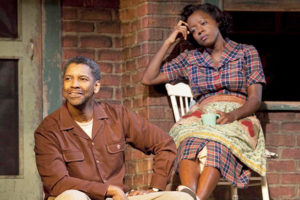
People much smarter than I have put forth my own theory as to how this happened: Someone near and dear to Viola Davis’ heart told her that though her turn in Fences is layered in gold, she shouldn’t have to once again undergo the pain of watching a grand, over-the-top Meryl Streep impersonation of an imperious British woman (Margaret Thatcher in 2011’s The Iron Lady) bigfoot the lead-actress Oscar away from a can’t-miss Davis performance (that same year, in The Help). Hence, there’s no real harm in her campaigning in this category since she’s not necessarily top-billed, right? It wouldn’t surprise me if the person dropping this hint in Davis’ ear was her Fences director and co-star who has often said, given that he has both, that there’s no real difference between lead and supporting Oscars; they’re both for acting, they’re both the same height, weight and color, and what else needs to be said?
FWIW: Just this. Michelle Williams’ minutes in front of Manchester by the Sea’s cameras were the most meaningful, heart-rending minutes I’d seen from any actress last year beyond those of Davis herself. To these eyes, it’s unfair that Williams’ raw, resonant performance has to take a back seat to a larger, more sweeping one from someone who I now consider to be, indisputably, a goddess. Yes, I said it before and I’ll say it again: VIOLA DAVIS IS GOD…but Michelle Williams is pretty great, too, and deserves a clear, smooth ride to glory of her own someday.
Best Original Screenplay:
Hell or High Water,”
La La Land
The Lobster
Manchester by the Sea
20th Century Women
Always a bad idea to bet against Kenneth Lonergan in this category, especially when he seems to have reached a new, fresh peak here.
FWIW: If Lonergan or his script weren’t on this list, I’d incline towards Hell or High Water, which wouldn’t have stood out so conspicuously if the movie had been made in 1980, or even 1970, instead of 2016.
(2/20) While we’re here, do you guys mind if I ramble a little about this notion, stubbornly persistent these days, that a movie is somehow handicapped for being a “downer”? First, who can tell me what the Greatest American Play ever written is? (Let’s not see the same hands…) Right. Long Day’s Journey Into Night. Oh, you thought it was Death of a Salesman or A Streetcar Named Desire? Well, fine, but is there a “feel-good” number among that group? I thought not. O’Neill’s play comes in first for me because whenever I see a production of Long Day’s Journey Into Night I may find the story it tells unbearably depressing. But I walk away from it invigorated by its artistry, its raw dynamism and, above all, its rich and humane sense of character. I’m not saying Manchester By The Sea is somehow equal to Long Day’s Journey…in achievement. But it is animated by the same insistence on taking people as they are and acknowledging life’s travails and defeats…and somehow staying alive anyway. It’s the artistry, not the content, that brings me up. And if the rest of us can only see movies in terms of how their stories make you “feel” at the end rather than how those stories are forged in the first place, then we’re in worse shape than I thought…with no end in sight. And THAT, in case you’re confused, is the real downer here.
Best Adapted Screenplay:
Arrival
Fences
Hidden Figures
Lion”
Moonlight
This one’s tough; very competitive and perhaps subject to the caprice of the four winds. Still betting on the deep reserves of good will towards Moonlight, but never underestimate the dark arts of Harvey Weinstein to finagle something-or-other for Lion.
(2/20) See Supporting Actor above…
Best Foreign Language Film:
Land of Mine
A Man Called Ove
The Salesman
Tanna
Toni Erdmann
Donald Trump’s travel ban made this a cause-celebre, given Asghar Farhadi’s refusal to attend the ceremony. So I guess it’s a no brainer, though otherwise, as I indicated earlier, it’d have been Toni Erdmann’s to lose.
FWIW: All that said, The Salesman’s also a very good movie and deserves whatever it will get for whatever reason.
(2/20) Still hedging, though, just a little on Maren Ade’s behalf. People REALLY love goofy Toni.
Best Cinematography:
Arrival
La La Land
Lion
Moonlight
Silence
Any of you guys know that Linus Sandgren was the DP on David O. Russell’s last two movies along with The Hundred Foot Journey? I was neither overwhelmed nor underwhelmed with the latter, but I remember it looking a lot better than it actually was. His peers have already acknowledged him and they’ll continue to do so here.
Best Original Score:
Jackie
La La Land
Lion
Moonlight,
Passengers
The juggernaut rolls on – mainly because there’s no evidence here that it shouldn’t.
Best Animated Feature Film:
Kubo and the Two Strings
Moana
My Life as a Zucchini
The Red Turtle”
Zootopia

Outside of what many have declared the presumptive (and deserving winner), the only one of these I’ve seen is Kubo and it’s REALLY an amazing movie! Still for reasons having to do with The Way Our Lives Have Been Lately, a movie about inter-species travails in an urban setting is Right On Time, along with being surprisingly well wrought.
Best Documentary Feature:
Fire at Sea
I Am Not Your Negro
Life Animated
O.J.: Made in America
13th
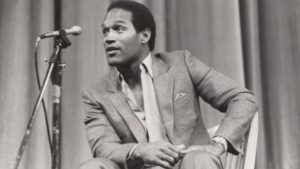
Let me tell you how old I am: Old enough to remember writing stories about how Ye Olde Academy of Motion Picture Arts & Sciences wouldn’t give so much as a glance to any prospective nominee appearing on television first, no matter how many theaters exhibited it in the intervening months. Such prohibitions, to this reporter’s mind, cost two great performances – Linda Fiorentino’s in The Last Seduction (1994) and Gillian Anderson’s in The House of Mirth (2000) – the nominations and, at least in Fiorentino’s case, the win – they deserved. I know it’s a far different world now with streams, clouds and those other water-based delivery systems without which not even Meryl Streep can function. I’m still not sure how the rules accommodate those changes. But rather than grouse about past injustices, I can say that if any of these worthy nominees were somehow excluded from consideration for appearing on a small screen first or even second or third, I’d stop writing these things immediately and find a new hobby. (Pez dispensers, anyone? Anyone?) And what do you know? I’ve gone on so long about this issue that I no longer have enough space to explain why I think Ezra Erdman’s epochal inquiry into race in America is far more deserving than Ava Du Vernay’s. I can say that it’ll be far more attractive to Academy voters since the story it tells is, for them, a local story writ grand and lucid.
(2/20) I Am Not Your Negro, however, has made explosive headway through the marketplace since voting began. It may not gather enough steam to make a difference here, but keep your eyes and ears open…
Best Original Song:
“Audition (The Fools Who Dream)” from La La Land
“Can’t Stop the Feeling” from Trolls
“City of Stars” from La La Land
“The Empty Chair” from Jim: The James Foley Story
“How Far I’ll Go” from Moana
I’ll catch hell from somebody for saying this, but I think “Audition” is at or very near the rare-air reaches of Carousel’s “Soliloquy” for a musical monologue, nailed down compellingly enough by Stone to, perhaps, make me the fool for dismissing her chances for Best Actress, as noted above. But “City of Stars” is something at which grey heads can imagine Sinatra taking a swing. And lest we forget, the Academy is still crowded with grey heads.
February 15th, 2015 — movie reviews
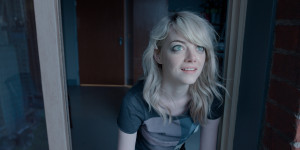
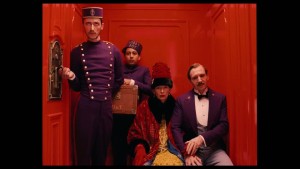
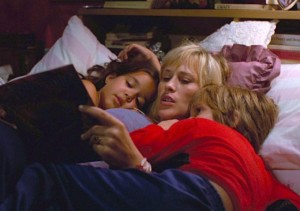
Why am I handicapping the Oscars yet again? Because I still can’t afford to buy live ammo, live trout and a barrel thick enough to withstand the former and big enough to carry the latter.
That’s how easy this game is, despite mass media’s insistence on playing it over and over and over, year after year after bloody year. It’s gotten so that even when there’s the prospect of suspense, as there was a year ago, the evening itself ends up being about as suspenseful as a congressional Electoral College vote. Even the things I was wrong about last year, didn’t surprise me; notably “12 Years a Slave” winning Best Picture, though I was mildly surprised to have been right about its screenwriter, John Ridley, winning one.
Anyway, since I think this year’s crop is even easier to forecast than usual, I’m going to do to try making things interesting (at least, for me) by adding a For Whatever It’s Worth (FWIW) section beneath sundry categories. Mostly, I’m going to suggest missing contenders. Otherwise it’ll just be whatever pops into my jejune lil’ head.
Oh, and my projected winners, as usual, are in bold.
Best Picture
American Sniper
Birdman
Boyhood
The Grand Budapest Hotel
The Imitation Game
Selma
The Theory of Everything
Whiplash
Boyhood seemed ahead by many lengths at the start of this season; not so much, now, even though some still believe its BAFTA prize keeps it in the game. They’re wrong – and this says as much as (and far better than) I could as to why this is now a foregone conclusion. The only thing I might add to Mark’s diagnosis is that Hollywood narcissism is as much a device for denial as it is for self-congratulation. Editors and pundits, especially those who have no idea what movies are about, believe that controversy and buzz are all a movie needs to become anointed Best Picture. You’d think that, by now, they’d know that’s the LAST thing the Academy Awards want unless – and only unless – they can somehow exalt themselves by recognizing the controversy and embracing it. But all the money American Sniper‘s raking in isn’t going to make these people any braver about such things. Not in this century, folk. At least not yet.
FWIW – Overall, a good-but-not-great list appropriate for a good-but-not-great year. Only Lovers Left Alive, for those who keep asking, was my number one movie of last year and, similar to what one of its characters says about Detroit (where it’s set), it is the one 2014 movie I think is best equipped to endure and ultimately prevail through 2064.
Best Director
Alejandro Innaritu, Birdman
Richard Linklater, Boyhood
Bennett Miller, Foxcatcher
Wes Anderson, The Grand Budapest Hotel
Morten Tyldum, The Imitation Game
For reasons already mentioned, I’m less sure about this one than I was several months ago, though Best Picture/Best Director splits have at least since the century’s turn gone from being a rarity to a semi-regular occurrence. Innaritu’s winning the DGA prize boosts his standing, though it doesn’t necessarily make him inevitable. I’m still inclined towards Linklater because just his investment of time and effort is too impressive to ignore, no matter how you may feel about the result.
FWIW – The omission of Selma’s Ava DuVernay from this category caused an outcry of such breadth that it came across like the pop-cultural equivalent of Ferguson/”I Can’t Breathe.” In terms of racial profiling (as in raising of profiles as opposed to diminishing races), I don’t think things are as bad in Hollywood as they once were, say, fifty, thirty, even ten years ago. But as this shortsightedness proves, they could still be a lot better. And the movies better recognize that on this and many other matters, TV is way out in front. The Unbearable Whiteness of this year’s Oscars will, I think, end up as an anomaly, but can we talk sometime about Dear White People’s complete absence, too?
Best Actor
Steve Carell, Foxcatcher
Bradley Cooper, American Sniper
Benedict Cumberbatch, The Imitation Game
Michael Keaton, Birdman
Eddie Redmayne, The Theory of Everything
It’s essentially a race between the last two names on this list and as impressed as Hollywood can be with actors who go through the kind of physical transformations Redmayne does here, it’s the larger, deeper transformations embedded in Keaton’s weathered visage that will make more of a difference with voters.
FWIW – Lots of MIAs here; notably Timothy Spall in the title role of Mr. Turner and Ralph Fiennes’ embattled concierge of The Grand Budapest Hotel. The first is something you’ve never seen before while the second is a polished exemplar of Mannered Screwball reminiscent of movies made in the decade its movie purports to chronicle. Though Philip Seymour Hoffman wouldn’t have won for A Most Wanted Man, a posthumous nomination would have been a nice gesture. And while I wasn’t a huge fan of Gone Girl, I was sure Ben Affleck’s wry, limber rendering of sad sap Nick Dunne would get a nomination, especially given his previous snub for a Best Director nod two years back for Argo. He wouldn’t have won here either. But his absence points to the kind of harder-than-it-looks acting style that the Academy routinely overlooks in favor of the Big Bravura Effect.
Best Actress
Marion Cotillard, Two Days, One Night
Felicity Jones, The Theory of Everything
Julianne Moore, Still Alice
Rosamund Pike, Gone Girl
Reese Witherspoon, Wild
Done deal. And she deserves it…
FWIW – …but Cotillard, the most compelling film actress in the world, deserves it more for a performance that is (once again) too subtle and contained to satisfy the Academy’s inclination towards the aforementioned Big Bravura Effect (hereafter known as BBE). Here’s a little irony to put in your tea: Seven years ago, Cotillard’s grand, eerily detailed rendering of Edith Piaf in La Vie en Rose won this award over the favored Julie Christie, whose performance as an Alzheimer victim in Away From Her that year was a much rawer depiction of the disease’s ravages than Moore’s, which, as noted, has unsettling graces of its own.
Best Supporting Actor
Robert Duvall, The Judge
Ethan Hawke, Boyhood
Edward Norton, Birdman
Mark Ruffalo, Foxcatcher
J.K. Simmons, Whiplash
As with Christopher Plummer a couple years back, he’s so inevitable that he’s already sweeping up the foam packing peanuts that came with the statuette’s advance delivery to his home. But as long as we’re here, let’s idly speculate. What if Simmons’ performance had been placed where it properly belongs: In the lead actor category? Would he have been as decisive a shoo-in as he is here? Let’s go even crazier. Since Denzel Washington is the only living actor who could have matched Simmons volt for volt in this role, would HE have been given a lead actor nod because of his relative professional standing? Or would he have likewise been nominated for supporting actor? Keep in mind that my comparison with Denzel doesn’t shortchange but, if anything, amplifies the dimensions of Simmons’ work here and I can only hope that the good vibes continue for him well beyond awards season.
FWIW – Some people consider Norton the runner-up while I think Hawke’s work in Boyhood is every bit as committed and resonant as that of the woman who’s a lock for Best Supporting Actress. (See below.) The guy who got screwed here is Josh Brolin, whose gonzo LAPD cop in Inherent Vice, was inspired, magnetic daffy-duckiness.
Best Supporting Actress
Patricia Arquette, Boyhood
Laura Dern, Wild
Keira Knightley, The Imitation Game
Emma Stone, Birdman
Meryl Streep, Into the Woods
As with Moore and Simmons, it’s hard to imagine a scenario where this doesn’t happen. And Arquette’s pitch-perfect evocation of a smart, decent woman seemingly condemned to making foolish choices in life partners stood out in her movie even more than its twilit reveries.
FWIW – I’ve already mentioned Affleck’s understated comedic turn in Gone Girl, whose one great performance belonged to Carrie Coon. As Nick’s sister, she was the beating, breaking heart of that movie. She didn’t get a nomination, but she’s now got my attention, and deserves yours.
Best Adapted Screenplay
American Sniper
The Imitation Game
Inherent Vice
The Theory of Everything
Whiplash
I could imagine any of these walking away with the statuette, but I can’t imagine Harvey Weinstein’s typically robust campaign on behalf of his leading entry coming away from this thing empty-handed.
FWIW – Any script that would even try to adapt a Thomas Pynchon novel for the screen, even one as relatively accessible as Inherent Vice, is worthy of a party favor, even if the result bemused as many people as it amused.
Best Original Screenplay
Birdman
Boyhood
Foxcatcher
The Grand Budapest Hotel
Nightcrawler
Birdman is Wes Anderson’s only worry here. That’s more of a director’s movie. Which is to say Wes Anderson has nothing to worry about.
FWIW – There were some who believed Whiplash belonged here and would have won easily if it had been in its rightful category. Simply put, yes and no.
Best Animated Feature
Big Hero 6
The Boxtrolls
How to Train Your Dragon 2
Song of the Sea
The Tale of Princess Kaguya
This has already won an “Annie” in this category and nothing else here seems to have the legs to beat it.
FWIW – Always easier to handicap when Pixar has an entry. Except they don’t this year. (Whaaaat?)
Best Documentary Feature
Citizenfour
Finding Vivian Maier
Last Days in Vietnam
The Salt of the Earth
Virunga
You ignore currency and/or vitality in this category at your peril, as recent winners have proved. Nothing else in this year’s group has both in such quantity.
FWIW – Still, I was beguiled by Vivian Maier’s one-of-a-kind story and wish there was still room for such quirky, gnomish movies to finish with the gold. We – most of us, anyway – don’t live in a quirky, gnomish world.
Best Foreign Language Film
Ida
Leviathan
Tangerines
Timbuktu
Wild Tales
Ida has swept most of the critics’ awards and will likely continue its run here. It’s an austere, beautiful piece that mostly lives up to its hype.
FWIW – But, I dunno, I preferred Leviathan’s overall weight and power; the kind that usually mugs austerity in Oscar’s back alleys. Wouldn’t be an upset if it won here.
Best Cinematography
Birdman
The Grand Budapest Hotel
Ida
Mr. Turner
Unbroken
Any of these would be a legitimate winner, but I’m guessing the voters will prefer the one that makes sure you can see an almost-naked man walking through Times Square.
FWIW – Mr. Turner, Mr. Turner, Mr. Turner, Mr. Turner, Mr Turner (If I say it often enough, will they come to their senses? I’m pressing on, anyway!), Mr. Turner, Mr. Turner…..
Best Original Score
The Grand Budapest Hotel
The Imitation Game
Interstellar
Mr. Turner
The Theory of Everything
Alexandre Desplat finally wins one. But for which one? Competing against yourself in the same category seems a formula for canceling yourself out. But Budapest’s music is far more striking than Imitation Game. So Desplat beats Desplat here by a length.
FWIW – I, too, would have liked seeing Antonio Sanchez’s trap-set dynamics for Birdman in this group. But there’s no way Hollywood tradespeople give props to a lone musician inventing a score as he goes along. The Oscars go to…people who help make more work (and money) for everybody in the industry, whether in ensembles or orchestras.
Best Original Song
“Everything is Awesome,” The Lego Movie
“Glory,” Selma
“Grateful,” Beyond the Lights
“I’m Not Going to Miss You,” Glen Campbell: I’ll Be Me
“Lost Stars,” Begin Again
No one, not Joe Califano, not Harvey Weinstein, not Maureen Dowd, is going to stand in this one’s way…
FWIW — …though “Everything is Awesome” may yet become the anthem of the next collectivist revolution. (As if.)
December 9th, 2012 — movie reviews

Flight (IMMEDIATE REACTION: By the way, who was that kid playing the cigarette-smoking cancer patient on the stairwell? Let’s see…James Badge Dell. He’s really, really good in this. Wonder if he’s as good with hair as without?)
Gene Siskel told anyone who brought up the matter that he believed Roger Ebert, his longtime TV tag-team partner, to have been a better writer than he was. That he was right only underscores how he may, by only a few millimeters, have been the better critic. I wish there were a published collection of his reviews that buttresses that contention. All I have instead are memories of his off-the-cuff insight on the old At the Movies programs. For instance, I remember when Siskel tossed into the broadcast his suggestion that if any contemporary movie actor was best suited to play James Bond, it was Denzel Washington. This seemed at the time (late eighties, I’m guessing) such a daring leap of imagination that one wasn’t sure it was allowed to ooze through a TV set. But not that daring since, by the first Bush administration, Denzel Washington had proven that he was cool enough to carry a movie, even if it wasn’t necessarily his movie to carry. (See Glory or, for that matter, Philadelphia, which he pilfered, fair and square, from Tom Hanks.) And much as I love defending Pierce Brosnan from undue criticism because it makes some white people I know very angry, the Bond franchise couldn’t have done any better or worse in the intervening years by taking Gene up on his modest proposal.
If anything, playing Bond would have held Washington back. He never needed anybody’s franchise to establish his own lucrative brand because he can not only carry a movie, he can open one – which was, as recently as the nineties, historically unheard-of for an actor-of-color who wasn’t named Bruce Lee or Sidney Poitier. Early in Washington’s career, I remember a colleague claiming that if anything held him back from being a major star, it was his innate sweetness; a quality she believed drew audiences in while making them incredulous that he could ever be totally malicious or crazed. I knew what she meant; Washington could keep you off-balance, but he never entirely scared you, not even in his Oscar-winning role as a deeply bent cop in Training Day. But keeping you off-balance is good enough to keep you interested without putting you off – a perfect formula for drawing total strangers to the nearest multiplex for repeat visits. What people expected from a Denzel Washington movie was a really competent guy (with an edgy, somewhat remote exterior) capable of handling highly combustible circumstances, saving a bunch of people — and, often in the process, teaching hard lessons to younger (usually white) people.
The pre-release trailers for Flight led audiences to believe they were getting the same thing; Denzel at the controls of a mortally-wounded airliner, barking out orders, seeming to have it all together, waking up apparently surviving, saving lives and…and…well, what’s all this about finding excessive alcohol in his bloodstream? Hey, it’s not a Denzel Washington movie without rough edges, right? Those trailers made it seem as though Washington’s character was being unjustly accused of something and hinted that somehow he would find a way to clear his name.
You don’t see those trailers anymore. Flight’s cover has been fully blown. Washington’s Whip Whitaker may be as supremely proficient as many of his archetypical roles. But that alcohol in his blood is not exactly a red herring and he most assuredly does not have it all together. Put plainly, Whip’s a sick bastard, a functioning alcoholic with razor-sharp instincts for both handling heavy machinery and denying his disease. The same cues of cool audacity audiences expect from a Washington performance are positioned here to make his character smaller, even wormier, than usual.
Which sounds like a gi-normous risk for a movie star of Washington’s stature to take. But Washington is that rare commodity: a big star and a great actor. He punches up Whip’s fighter-jock arrogance with a knowing swagger that leaves the scenery bereft of bite marks. But he also lets you see, in still moments, the puffy, baffled ruins of a proud man’s self-esteem. Watch Whip’s eyes as he faces two of the surviving crew members, imploring them to help him stay out of jail. “I really need this,” he tells chief flight attendant Margaret (Tamara Tunie) and he looks as needy and vulnerable as any lost junkie grubbing dollars for a boost. (He’s scarcely less feral at such moments than Kelly Reilly’s waif-ish addict Nicole.) Oddly, that innate sweetness mentioned earlier as a detriment to his star power remains within the audience’s reach as a safety valve for its sympathy. Deep down (all right, really deep down), there’s a happy little boy that used to love his life and his calling before his drinking hit the nightmare stage.
You wish the rest of Flight was as conscientious and adventuresome as Washington. The reviewers are correct in proclaiming it the best film Robert Zemeckis has directed since Cast Away back in 2000. But the movies in between, 2004’s The Polar Express and 2007’s Beowolf , were motion-capture experiments that never get past the point of being, at best, merely interesting And yes, that crash-landing makes for a damned harrowing set piece. But it’s not as though Zemeckis hasn’t made a plane crash before – even though in retrospect Cast Away’s disaster-at-sea emits the keep-hands-in-the-car-at-all-times aura of a sensory thrill ride. Flight’s central catastrophe, though its details are more scarily accessible to our nervous systems, has its own issues of razzle-dazzle to overcome – and, just maybe, some plausibility problems as well.
What bothers me most about the movie can be summed up with the depictions of the characters played by John Goodman and Bruce Greenwood. The latter’s portrayal of Whip’s old Navy buddy and union rep is fashioned with a quiet dignity and persuasive empathy while Goodman brings to Whip’s boyhood chum and dealer the leathery brio and seedy flamboyance of a Sons of Anarchy supporting player. They’re both fine at what they do, but just suppose the two characters had switched roles, but not temperaments? If Greenwood had been a quieter, more reasonable-seeming enabler of Whip’s self-destructive habits and Goodman a more antic, less circumspect defender of Whip’s civil liberties, the movie might have seemed less conspicuously a pure product of Hollywood and more like something that challenged expectations as decisively as Washington’s performance. (The minute Goodman, with dark-glasses and ponytail, sashays into view with “Sympathy for the Devil” pumping into his ear buds, you can barely keep yourself from yelling back, “We get it, OK? He’s fracking Satan! You don’t have to flash the semaphores and sirens!”)
This isn’t meant to denigrate anybody’s performances, least of all those of Goodman and Greenwood, both of whom I’m always delighted to see on the big screen. Everybody in the movie, in major and minor roles alike, is first-rate. It’s just that the movie’s overall vision can’t or won’t match Washington’s capacity to transfigure both his heroic aura and the addict-in-crisis subgenre Flight ultimately represents. Washington doesn’t just carry this movie. He is the movie. He’s the only reason you stumble out of the theater, blinking, groping and checking your own judgment for leakiness. It’s the crowning glory of everything he’s done thus far – and it’s too bad he wont get a third Academy Award for it, even though there was maybe a week after the movie’s release during which he was considered, more or less, a shoo-in. He’ll still get nominated (and after all, isn’t that what it’s all about?) But as much as I love Lincoln and its titular , titanic performance, Denzel Washington would have had my vote if I still had one to give at the New York Film Critics Circle. Gene Siskel, I like to think, would have understood why.




























